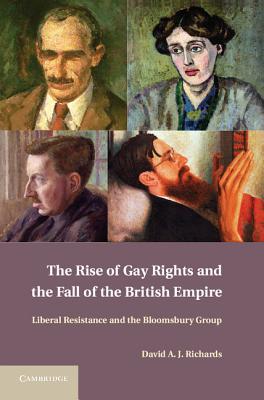
The Rise of Gay Rights and the Fall of the British Empire PDF
280 Pages·2013·2.7879 MB·other
Most books are stored in the elastic cloud where traffic is expensive. For this reason, we have a limit on daily download.
Preview The Rise of Gay Rights and the Fall of the British Empire
Description:
This book argues that there is an important connection between ethical resistance to British imperialism and the ethical discovery of gay rights. By closely examining the roots of liberal resistance in Britain and resistance to patriarchy in the United States, this book shows that fighting the demands of patriarchal manhood and womanhood plays an important role in countering imperialism. Advocates of feminism and gay rights (in particular, the Bloomsbury Group in Britain) play an important public function in the criticism of imperialism because they resist the gender binary's role in rationalizing sexism and homophobia in both public and private life. The connection between the rise of gay rights and the fall of empire illuminates larger questions of the meaning of democracy and of universal human rights as shared human values that have appeared since World War II. The book also casts doubt on the thesis that arguments for gay rights must be extrinsic to democracy, and that they must reflect Western, as opposed to "African" or "Asian," values. To the contrary, gay rights arise from within liberal democracy, and its critics polemically use such opposition to cover and rationalize their own failures of democracy.
See more
The list of books you might like
Most books are stored in the elastic cloud where traffic is expensive. For this reason, we have a limit on daily download.
